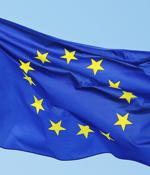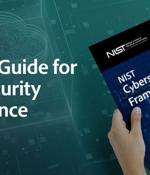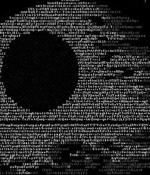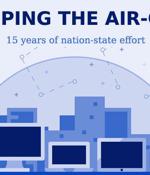Security News

A new zero-day vulnerability in the Spring Core Java framework called 'Spring4Shell' has been publicly disclosed, allowing unauthenticated remote code execution on applications. Spring is a very popular application framework that allows software developers to quickly and easily develop Java applications with enterprise-level features.

GTC Nvidia teased several updates to its Morpheus AI security framework at GTC this week, and also announced it would make the application framework generally available in April. In addition to releasing a pre-built version of Morpheus, Nvidia will also publish the framework's full source code on GitHub to allow developers to modify Morpheus and build security applications on top of the software.

The European Systemic Risk Board proposed a new systemic cyber incident coordination framework that would allow EU relevant authorities to coordinate better when responding to major cross-border cyber incidents impacting the Union's financial sector. ESRB is an independent EU body established in 2010 that oversees the European Union's financial system to prevent and mitigate systemic risk.

Folks at Technische Universität Wien in Austria have devised a formal security framework called WebSpec to analyze browser security. They've used it to identify multiple logical flaws affecting web browsers, revealing a new cookie-based attack and an unresolved Content Security Policy contradiction.

The framework enables organizations to improve the security and resilience of critical infrastructure with a well-planned and easy-to-use framework. Although the CSF was written and updated while SaaS was on the rise, it is still geared towards the classic legacy critical infrastructure security challenges.

Cybersecurity researchers have offered a detailed glimpse into a system called DoubleFeature that's dedicated to logging the different stages of post-exploitation stemming from the deployment of DanderSpritz, a full-featured malware framework used by the Equation Group. DanderSpritz came to light on April 14, 2017, when a hacking group known as the Shadow Brokers leaked the exploit tool, among others, under a dispatch titled "Lost in Translation." Also included in the leaks was EternalBlue, a cyberattack exploit developed by the U.S. National Security Agency that enabled threat actors to carry out the NotPetya ransomware attack on unpatched Windows computers.

ESET researchers present their analysis of all malicious frameworks used to attack air-gapped networks known to date. "Unfortunately, threat groups have managed to find sneaky ways to target these systems. As air-gapping becomes more widespread, and organizations are integrating more innovative ways to protect their systems, cyber-attackers are equally honing their skills to identify new vulnerabilities to exploit," says Alexis Dorais-Joncas, who leads ESET's security intelligence team in Montreal.

Four different malicious frameworks designed to attack air-gapped networks were detected in the first half of 2020 alone, bringing the total number of such toolkits to 17 and offering adversaries a pathway to cyber espionage and exfiltrate classified information. "All frameworks are designed to perform some form of espionage, [and] all the frameworks used USB drives as the physical transmission medium to transfer data in and out of the targeted air-gapped networks," ESET researchers Alexis Dorais-Joncas and Facundo Muñoz said in a comprehensive study of the frameworks.

To help, here's a simple 5-step framework businesses of all sizes can use to protect their customer data. The first step businesses need to take to increase the security of their customer data is to review what types of data they're collecting and why.

Cybersecurity is a lucrative field, and you don't have to spend years learning all the various aspects of it. If you are an advanced IT professional, you can actually break into it with very specialized training, such as the NIST Cybersecurity & Risk Management Frameworks course.